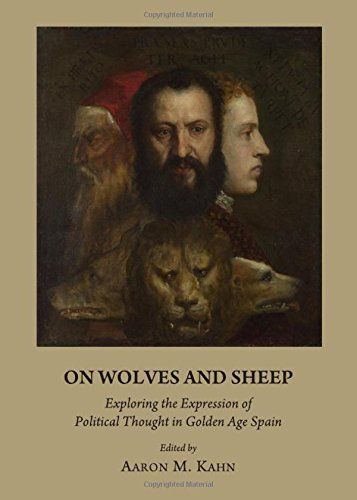
On Wolves and Sheep Exploring the Expression of Political Thought in Golden Age Spain
With the rise of nationalism, and with it the nation-state in the fifteenth and sixteenth centuries, so arose new polemical issues. As the Spanish Empire expanded in the sixteenth century, theologians, jurists, artists and politicians commented on the morality and legitimacy of the imperial enterprise. With the increase in power of successive Spanish sovereigns from the Catholic Monarchs to Philip II (1556–98), followed by the decadence of the state through the reign of Charles II (1665–1700), political participants and observers alike put their thoughts on paper for mass dissemination. The study of epic poetry, poetry, drama, novels, rhetoric, imperial administrative documents and religion, reveals a plethora of means by which these people conveyed thoughts and opinions, often negatively critical, concerning Spain’s monarchs, their imperial policies, the Catholic Church, the role of the nobility in government, and societal limitations. Providing innovative literary interpretations and revealing newly-discovered archival material, experts from US and UK universities have contributed original scholarly studies to this volume which delve deeper than academia has thus far into the operations of imperial Spain and the reactions of the people of the time. Studying works by the likes of Alonso de Ercilla, Juan de la Cueva, Miguel de Cervantes, Lope de Vega, Francisco de Quevedo, and Calderón de la Barca, among others, On Wolves and Sheep explores the various methods used in the Spanish Golden Age to voice political opinions and ideas.